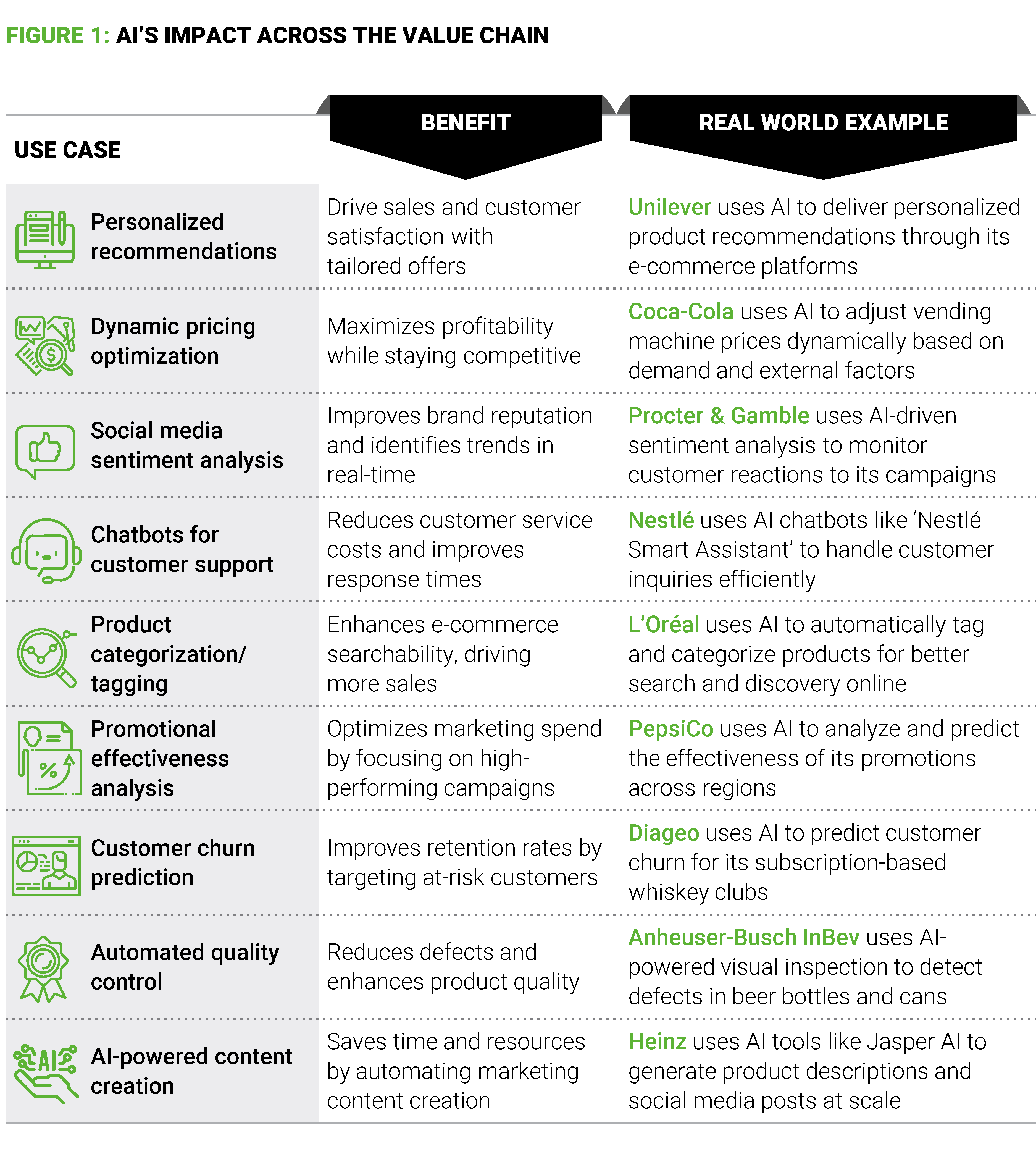Randy Burt
Chicago
Artificial intelligence promises unmatched productivity gains, improved operational efficiency, real-time consumer insights, hyper-personalized experiences, and large-scale predictive decision-making capabilities that can revolutionize the consumer products industry. The road to successful AI adoption, however, is paved with obstacles for many organizations, ranging from algorithmic biases and resource limitations to data privacy issues and the possibility of job displacement.
Consumer products companies need to take a strategic stance, establish a strong foundation, and create a clear roadmap that tackles these issues head-on if they want to realize AI's full potential and outcompete in the market.
AI adoption makes a lot of economic sense. The Stanford Institute for Human-Centered Artificial Intelligence's AI Index 2024 Annual Report estimates that by 2030, productivity gains and broad industry adoption of AI could boost global GDP by an astounding $15–20 trillion. With applications like customized e-commerce and efficient supply chains, the retail and consumer products industries alone stand to gain between $2–3 trillion in value. Businesses that have successfully scaled AI implementations include Procter & Gamble and Unilever, which have reported remarkable productivity gains of 20–35% across key functions like supply chain forecasting, marketing personalization, and customer service automation.
Organizations that successfully transition from scattered pilots to enterprise-scale AI share five key traits:

Implementing AI at scale is not without its challenges. Data silos, skill gaps, and legacy processes and systems still plague many consumer products companies. These practical recommendations can help you get started on or accelerate your AI journey:
The time to act is now. By preparing your company’s data, building the necessary infrastructure, and establishing robust governance procedures, consumer products companies can leverage AI to gain a competitive edge in today’s dynamic and uncertain economy. To support this journey, consider:
The AI revolution is here—will your organization be at the forefront? Our experts can help—reach out to learn more.